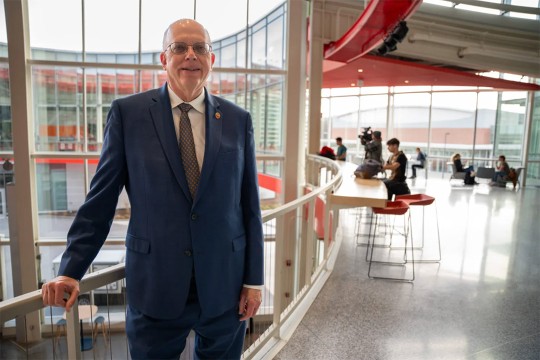Researchers Use Unique Approach to Analyze Success of Pollution Control Policies
Professor James Winebrake, chair of the department of science, technology and society/public policy at Rochester Institute of Technology, has joined forces with researchers from the University of Michigan and the University of California at Berkeley to create a new model for analyzing the effects of automotive greenhouse gas policies on efficiency and pollution levels. The team was recently awarded a $100,000 grant from the National Science Foundation.
“There has been a great deal of debate over the effectiveness of U.S. pollution control policies,” Winebrake says. “However, few studies have ever attempted to combine scientific data with proper policy and marketing analysis. Through this research, we plan to provide a better understanding of what works and what doesn’t and ultimately assist in reducing greenhouse gas emissions.”
The team is currently developing a life cycle approach, which takes into account several different factors that impact the effectiveness of greenhouse gas policies. These factors include the degree to which other pollutants affect an area, the availability of alternative energy options and the market availability of products such as hybrid vehicles.
“You can not properly study the effectiveness of governmental policies unless you take into account the entire environment affecting the outcome,” Winebrake adds. “This study will propose one of the first frameworks by which a wide variety of disciplines can come together to improve the quality of our environmental regulations and will hopefully serve as model for future analysis.”














